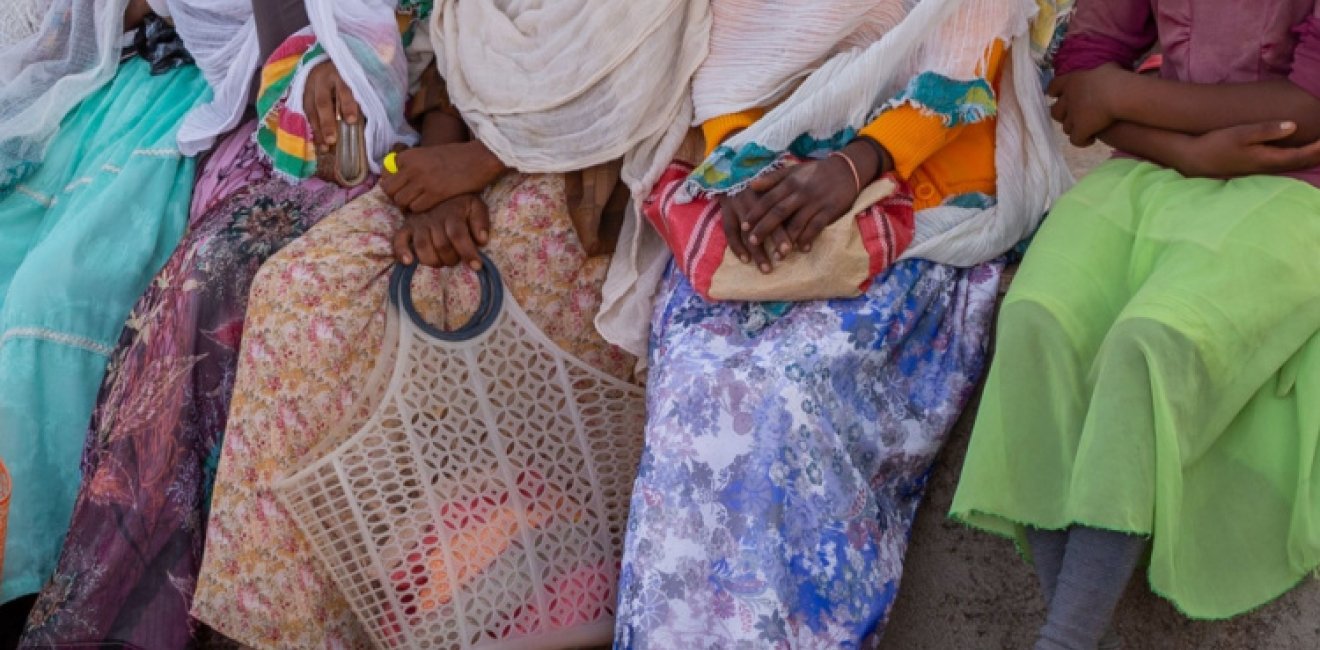
A blog of the Africa Program
Ethiopia’s Tigray conflict—one of the world’s deadliest conflicts—has been characterized by a particularly dire level of gender-based violence (GBV). Throughout the two-year war, experts estimate that GBV was committed against at least 40 to 50 percent of women and girls in the Tigray, Amhara, Afar, and Oromia regions of Ethiopia. These figures are an underestimation. Further, approximately 80 percent of cases reported rape, and over 90 percent of cases were perpetrated against underage girls.
Both sides of the conflict, including members of the Ethiopian National Defense Force, the Eritrean Defense Force, the Tigrayan Forces, Tigrayan militias, the Amhara Regional Special Force, and the Fano militia, are implicated. Investigations of human rights abuses and war crimes conducted by the Ethiopian Human Rights Commission and the UN Human Rights Office revealed that wartime sexual violence was a “deliberate strategy” to “terrorize, degrade and humiliate the victims and the ethnic minority group that they belong.” Refugees and internally displaced women were particularly targeted by these acts of violence. While the November 2022 Cessation of Hostilities Agreement (CoHA) formally ended the conflict, the rates of sexual violence are unchanged, and the needs of extensive numbers of victims continue to be unmet.
The Tigray conflict is one of several cases of wartime sexual violence perpetrated against women throughout conflict zones in Africa. In Sudan, just months after violence ignited between the Rapid Support Forces (RSF) and Sudanese Armed Forces, reports indicate the “brutal and widespread use of rape and... sexual violence” by the RSF, especially as a tool of the “targeted ethnic violence” unfolding in Darfur. In the Democratic Republic of the Congo (DRC), instances of GBV are surging after conflict between the government and militant groups has resumed in an area where women and girls are already extremely vulnerable. Even when women report the perpetrators of sexual violence, it is highly doubtful that any justice or redress will be delivered in these situations. Like Ethiopia, cultures, and systems that marginalize women continue to enable GBV with impunity within DRC and Sudan. Therefore, it is important to note that while exacerbated by conflict, GBV is a particularly detestable symptom of a larger issue—the marginalization of women—and “should not be treated merely as a by-product of conflict.” While the safety, redress, and rehabilitation of victims should be the foremost priority, attention must also be paid to the extensive systems of oppression against women that engender and allow these sorts of large-scale GBV campaigns that devastate women, girls, and entire communities.
Accountability, Restoration, & the Role of the United States
The United States maintained its diplomatic relations with Ethiopia throughout the Tigray conflict while condemning the atrocities committed by Ethiopian and Eritrean regional forces and participating as an observer to negotiations in Pretoria between the Government of Ethiopia and the Tigray People’s Liberation Front that led to the CoHA. The United States continues the dialogue with Ethiopia, which US diplomats portray partly as an effort to ensure that Ethiopia’s transitional justice mechanisms—part of the CoHA—are authentically followed. However, the international community has expressed concern that the Ethiopian Government will only engage with accountability mechanisms to the point of “quasi-compliance” to “deflect international attention and circumvent international scrutiny” while not following through on efforts to bring justice to victims.
...Attention must also be paid to the extensive systems of oppression against women that engender and allow these sorts of large-scale GBV campaigns that devastate women, girls, and entire communities.
Over a year since the CoHA, while the “silencing of guns” may ring true, the sexual violence committed by the Ethiopian and Eritrean forces has seen an appalling lack of accountability. Successful public pressure in May 2021 resulted in the release of a summary report of the violations of international humanitarian law by Ethiopian and Eritrean forces. Now that Ethiopia is making progress in disarmament efforts, the government must show true dedication to prosecuting perpetrators of wartime sexual violence. Although Ethiopia’s Ministry of Defense launchedan investigative team that found 60 incidents of crimes of sexual violence and extrajudicial killings in September 2022, the military courts had only 25 convictions and two acquittals, and little progress has been made since the cessation of hostilities. Pressure by international funders and human rights organizations could catalyze the continuation of such investigations, especially when coupled with a UN and US commitment to ensure CoHA’s justice mechanisms are properly and thoroughly implemented.
Furthermore, action must be taken to help address the extensive need among women who have experienced conflict-related GBV. USAID has clarified that eliminating GBV is integral to its foreign policy. After the CoHA, USAID made it a priority to fund organizations in Ethiopia that provide protection and psychosocial support to women, such as counseling services and dignity kits, helping to increase the availability of these services. USAID’s humanitarian response in Ethiopia has also worked to strengthen the capacity of human rights and civil society organizations in Ethiopia that address conflict-related GBV.
However, USAID’s difficulties have also highlighted the complexity of addressing the human rights abuses that continue to occur. Earlier this year, USAID temporarily suspended food aid in Ethiopia following massive diversion and theft of large aid deliveries, worsening the impacts of rising hunger and the displacement crisis in Ethiopia, which particularly impacts and further marginalizes women.
Overall, measures that address and seek accountability for GBV must be accompanied by strengthening civil society and continually making efforts to ameliorate the position of women in society, especially in countries like Ethiopia, marked by significant gender inequality. Women leaders and women-led civil society organizations must be effectively supported, and in Ethiopia, their representation in post-conflict national dialogue efforts is imperative.
Milkee Bekele is a Staff Intern with the Stafford Capacity Building Internship at the Wilson Center Africa Program for the Fall 2023 term. She is currently a senior at Macalester College studying International Studies and Anthropology.
Torianna Eckles is a Staff Intern (Director's Office) with the Stafford Capacity Building Internship at the Wilson Center Africa Program for the Fall 2023 term. She is a senior at The George Washington University, double majoring in Peace and Conflict Resolution and Political Science.
The opinions expressed on this blog are solely those of the authors. They do not reflect the views of the Wilson Center or those of Carnegie Corporation of New York. The Wilson Center's Africa Program provides a safe space for various perspectives to be shared and discussed on critical issues of importance to both Africa and the United States.
Authors



Africa Program
The Africa Program works to address the most critical issues facing Africa and US-Africa relations, build mutually beneficial US-Africa relations, and enhance knowledge and understanding about Africa in the United States. The Program achieves its mission through in-depth research and analyses, public discussion, working groups, and briefings that bring together policymakers, practitioners, and subject matter experts to analyze and offer practical options for tackling key challenges in Africa and in US-Africa relations. Read more

Explore More in Africa Up Close
Browse Africa Up Close
The Innovative Landscape of African Sovereign Wealth Funds



